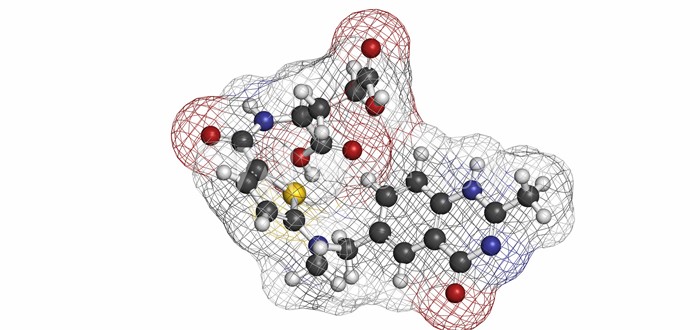How did you spend National Mesothelioma Awareness Day? Raffit Hassan, M.D., spent it talking about updated results from the phase 1b clinical trial of mesothelioma immunotherapy drug CRS-207.
On Sept. 26, while everyone else was swathed in blue to show support for National Mesothelioma Awareness Day, Dr. Hassan was bathed in the white glow of a stage light to show his support for CRS-207.
The light that shone on him was in Vienna, Austria. He had traveled there to attend the joint annual meeting of the European Society for Medical Oncology and the European Cancer Congress.
The occasion served as an opportunity for Dr. Hassan — who works for the National Cancer Institute — to present the latest interim safety and efficacy data concerning CRS-207.
Drug Alters Mesothelioma Tumor Microenvironment
CRS-207 is an engineered, molecular-targeted immunotherapy drug intended for use in patients with unresectable malignant pleural mesothelioma. You’ve read other blogs about CRS-207 here earlier.
But what you hadn’t read previously was what Dr. Hassan shared on Mesothelioma Awareness Day.
According to Dr. Hassan, the mesothelioma tumor microenvironment is favorably altered by CRS-207. He said the newest data provide stronger evidence of this alteration.
According to Dr. Hassan, CRS-207 is causing the number of immune cells to increase, just as hoped. CRS-207 is also causing these cells to be marshaled in force at all the right attack zones, he indicated.
The phase 1b clinical trial of CRS-207 is made up of 34 patients. The disease was controlled by CRS-207 in 94 percent of them — practically everybody. Nearly 60 percent had partial responses.
When CRS-207 followed the administration of mesothelioma chemotherapy, mesothelioma was fully stabilized in 35 percent of these patients.
Dr. Hassan said three of the patients have so far had mesothelioma tumor biopsies as part of the evaluation. He said it was noteworthy that there was significant recruitment of immune cells in all three.
This recruitment included CD8+ T cells, dendritic cells, and other cell types that the immune system uses in its various bids to wipe out cancer cells and invading organisms.
Drug Paired With Mesothelioma Chemotherapy
Testing of CRS-207 has been underway since 2012. The enrollment of the 34 patients in the current stage of the clinical trial occurred more recently.
The phase 1b clinical trial was designed so that each patient would receive one dose of CRS-207 to start, then a second dose two weeks after that.
One full month after the initial CRS-207 dose, the patients then were given mesothelioma chemotherapy. The drugs making up the mesothelioma chemotherapy regimen were cisplatin and pemetrexed.
Mesothelioma chemotherapy continued at a pace of one dose every 21 days, for a maximum of six courses by the end of four months.
Three weeks after the mesothelioma chemotherapy came to a halt, another dose of CRS-207 was given. If a patient appeared to benefit from the CRS-207, more doses were given as time passed.
Complete results from this trial, along with additional biomarker data, are expected sometime in 2016, according to Dr. Hassan.
The company making CRS-207 and sponsoring the clinical trial hopes the U.S. Food and Drug Administration (FDA) will agree to allow it to go straight from phase 1b to phase 3 clinical trialing.
Phase 3 is the final one before the FDA makes a decision about whether to approve a new drug for mass marketing. The maker of CRS-207 believes the phase 1b results are positive enough to bypass phase 2 testing.
CRS-207 is made from an engineered, live-attenuated, double-deleted listeria monocytogene. It is designed to seek and destroy mesothelin. Mesothelin is a protein manufactured by mesothelioma cells.

